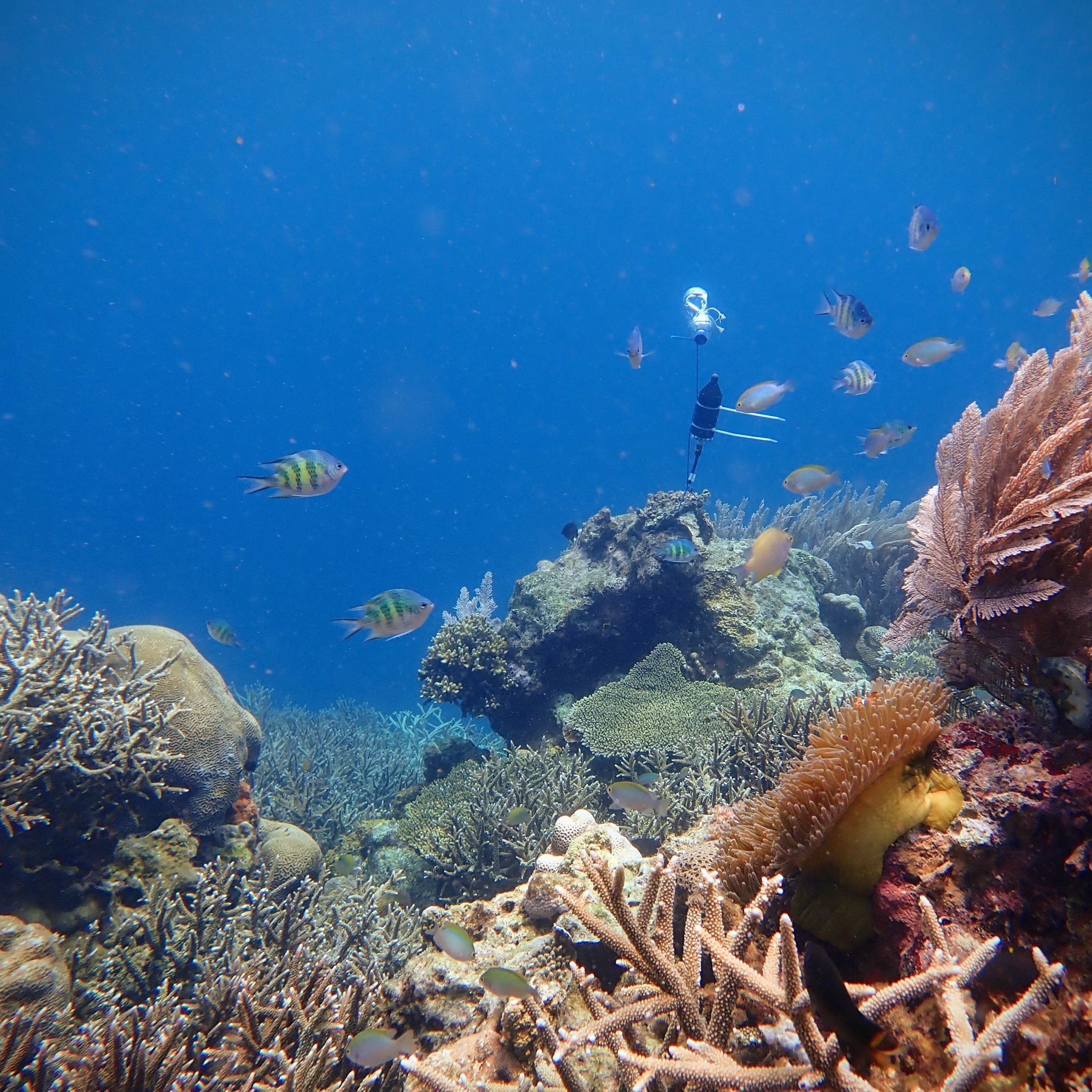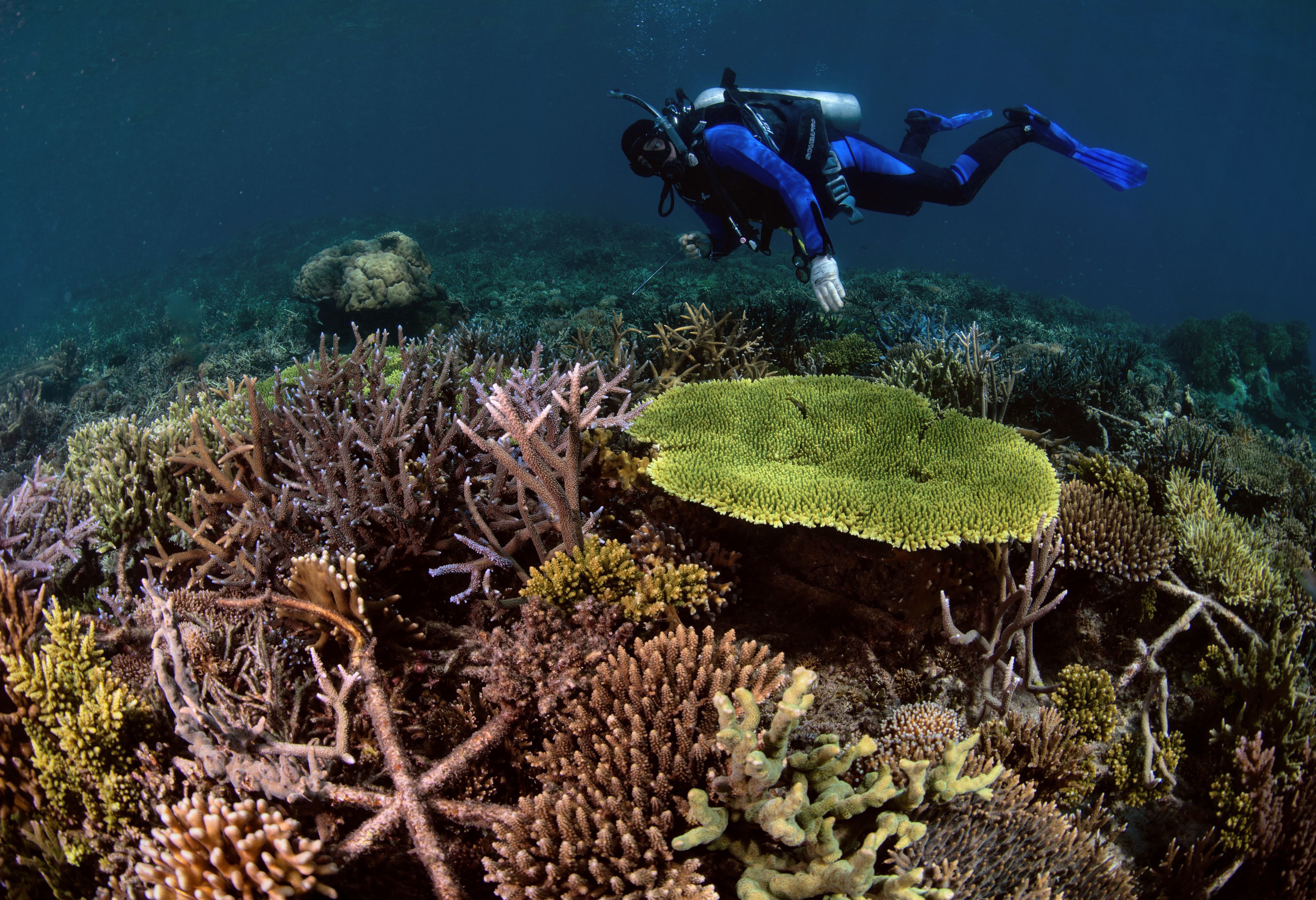
Groundbreaking Technology from Mars Coral Reef Restoration Program Wins No.1 Innovation Award
Here at Mars Sustainable Solutions, we have exciting news from our Science Officer, Ben Williams, who has been a collaborating researcher on our Coral Reef Restoration Program for the past three years.
On Tuesday, 18th April, it was announced that an innovation from the Mars Coral Reef Restoration Program has been recognized as one of the top 10 by the prestigious NetExplo Innovation Forum, supported by UNESCO. However, this innovation went further than the top 10 and, following a public vote, went on to win the No.1 spot!! Out of thousands of technological innovations aimed at environmental and social good, this recognition highlights the exceptional work done by Ben, the team and collaborating scientists.

A hydrophone recording the sounds of a coral reef in Indonesia
The project was deemed the ‘shazam for marine biodiversity’ and involved the development of artificial intelligence (AI) to listen to and monitor coral reef restoration. This innovation kickstarted in Spermonde, Indonesia in 2021, where Ben and the team explored the use of passive acoustic monitoring to measure the success of the Mars coral reef restoration program. However, manually listening to the recordings generated was a slow and labor-intensive process. To scale up this approach to more sites and restoration projects around the world, the team needed to find a way to automate the process.
Therefore, the team turned to AI to see if it could do the listening for them. Through trial and error, the team were eventually able to produce an AI that could correctly identify which kind of reef, either degraded or healthy, these new recordings came from almost 92% of the time. With this groundbreaking new tool, the team were able to apply this to recordings from two-year-old restored sites which the AI classified as sounding healthy. Given the success the team had in Spermonde, the next step is now to take the approach global. By taking recordings from multiple Mars restoration sites around the world, the team will determine whether we see this recovery in the soundscape universally and whether AI can help track this.

A restored reef, 3 years after installing Reef Stars
Whilst AI is a powerful tool to streamline coral reef restoration monitoring, listening to coral reef soundscapes is something we can all be involved in! “Calling in Our Corals”, a citizen science project, went live on the 18th April which invites everyone to listen to coral reef recordings and help build valuable data on the health of these reefs. Some of these sounds are even from our very own Mars restoration sites, including Indonesia & Maldives. You can check out more here: https://t.co/sgt00We7MX
The world we want tomorrow is one in which our vital coral reefs are restored and thriving. That’s why today, our collaborating scientists and the Mars Sustainable Solutions team are innovating revolutionary methods to monitor and restore coral reefs, expanding the boundaries of the science underpinning coral restoration. A huge congratulations to Ben, collaborating scientists and the entire Mars Sustainable Solutions team.

